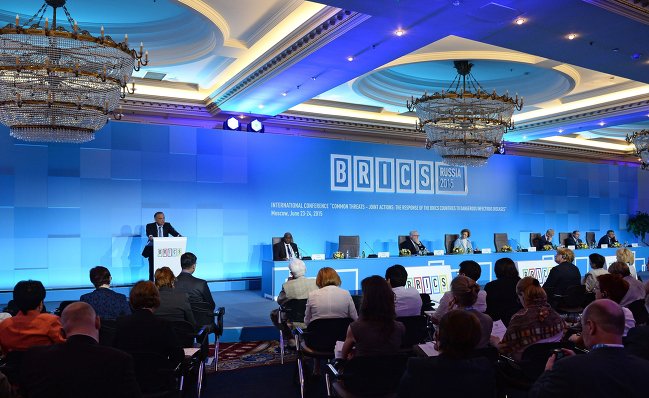
International Conference "Common threats – joint actions: The response of the BRICS countries to dangerous infectious diseases"
On 23 June, Moscow hosted the International Conference, "Common threats - joint actions: The response of the BRICS countries to dangerous infectious diseases," as part of Russia's BRICS presidency.
Taking part in the event are representatives of the BRICS countries, the World Health Organisation, the Joint United Nations Programme on HIV and AIDS, the UN Development Programme, the United Nations International Children's Emergency Fund and the World Bank, as well as leading Russian and foreign researchers in infectious disease prevention and treatment.
In her opening remarks, Deputy Prime Minister Olga Golodets said that Russia urges all countries to promote cooperation in research projects to control and prevent infectious diseases.
"We call on all countries to actively cooperate in research projects," she said, recalling that in the 1980s, smallpox was eradicated through the joint efforts of different countries.
"Currently, environmental changes are confronting us with new challenges: Ebola and a wide range of tropical diseases, which have serious proliferation risks. In this connection, we give special priority to vaccination research projects," she said, adding that coordination of efforts is also essential in the prevention of infectious diseases, in particular the flu.
Federal Service for Surveillance on Consumer Rights Protection and Human Wellbeing (Rospotrebnadzor) Head Anna Popova said that a centre for the study of the flu virus is being established at Rospotrebnadzor's Vektor State Research Centre of Virology and Biotechnology, which will collaborate with the WHO.
Speaking about the latest research into infectious diseases, she said that she sees no reason to fear mutations of the Middle East respiratory syndrome coronavirus (MERS-CoV), which has spread in South Korea.
"Studies show that there are no grounds to fear viral modifications or mutations that would lead to changes in the pathogenicity of the virus, but at the same time Russia, as well as other countries, is taking all necessary precautions," she said.
Russian Deputy Healthcare Minister Sergei Krayevoi said that infectious diseases kill one in three people in the world.
"The BRICS countries, which account for over 40 percent of the world's population, can make a significant contribution to combating infectious diseases," he said.
Special attention should also be given to monitoring biological risks in implementing epidemic control strategies and preventing threats related to recurring and new infections, he said.
Wide-ranging preventive vaccination programmes in Russia have helped achieve a significant reduction in the spread of infections. In 2014, the incidence of Hepatitis B fell 4.5 percent, year on year; the incidence of German measles fell by a factor of 3.2, the flu, by 2.7 and mumps was down by over 10 percent.